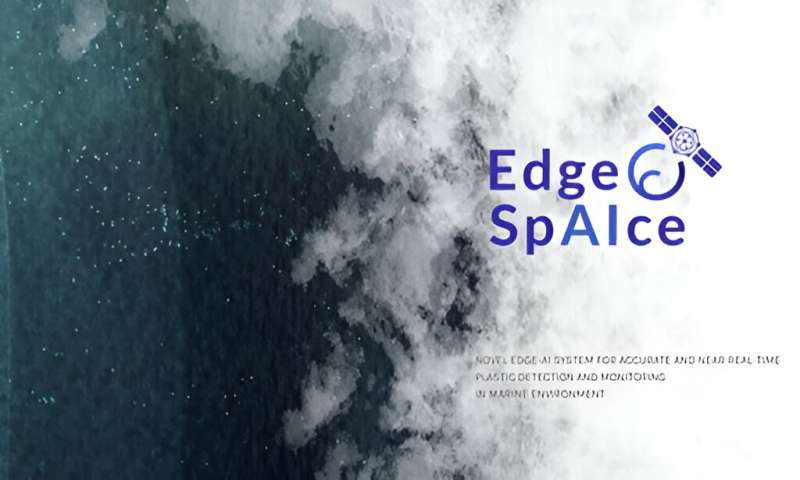CERN's edge AI data analysis techniques used to detect marine plastic pollution

Earth Observation (EO) and particle physics research have more in common than you might think. In both environments, whether capturing fleeting particle collisions or detecting transient traces of ocean plastics, rapid and accurate data analysis is paramount.
On this Earth Day, as we reflect on our responsibility to reduce plastics for the benefit of our society and all life on our planet, we are excited to present a new EU project, Edge SpAIce. It applies CERN's cutting-edge AI technology to monitor the Earth's ecosystems from space in order to detect and track plastic pollution in our oceans.
"In particle physics, the trigger system plays a critical role by swiftly determining which data from the particle detector should be retained, given that only a small fraction of the 40 million collision snapshots taken each second can be recorded.
"As the data influx at the Large Hadron Collider (LHC) has grown significantly over the years, physicists and computer scientists are continually innovating to upgrade this process—and this is where AI technology comes in," says Sioni Summers, a CERN physicist working on the CMS experiment at the LHC, who is supervising this work.
Edge SpAIce is a collaborative endeavor involving CERN, EnduroSat (BG) and NTU Athens (GR) and coordinated by AGENIUM Space. Its aim is to develop a specially designed on-board system for satellites that will make it possible to acquire and process high-resolution pictures using a DNN (Deep Neural Network).
The system will use the "edge AI" approach, in which data is processed in near real-time directly on the satellite, mirroring the efficient filtering of LHC data in particle detectors at CERN. This means that it is not necessary to transmit all of the captured data back to Earth but only the relevant information—in this case, the presence of marine plastic litter.
The system will also be deployed on FPGA hardware developed in Europe, which will improve competitiveness. This could open the door for a whole new market for EO services and applications.
As modern life increasingly relies on technology, the solution that the project offers adeptly addresses the growing demand for data processing and the rapid expansion of EO satellites. By eliminating the need for heavy processing in Earth-based data centers, it not only reduces the carbon footprint but also helps to relieve the burden on these facilities.
The innovative approach holds potential for broader applications in domains such as agriculture, urban planning, disaster relief and climate change. Additionally, this technology will provide environmental scientists and policymakers with invaluable data for targeted clean-up operations. It will advance our understanding of plastic pollution patterns, thereby enhancing our capacity to address environmental challenges effectively.
"AGENIUM Space is thrilled to have found synergies with CERN in developing innovative solutions for our planet's future," said Dr. Andis Dembovskis, a business development executive with AGENIUM Space.
Provided by CERN